What are Hydraulic Pumps
Hydraulic pumps are vital components in many industrial and mobile applications. They serve as the heart of hydraulic systems, converting mechanical energy into hydraulic energy, which is then used to perform various tasks such as lifting, opening, closing, or moving heavy loads. This conversion is achieved by creating a vacuum at the pump inlet that allows atmospheric pressure to force liquid from the reservoir into the inlet line to the pump. The pump then delivers this liquid to the hydraulic system at a higher pressure.
The operation of hydraulic pumps is based on Pascal's law, which states that when pressure is applied to a fluid in a closed system, the pressure is transmitted equally in all directions. This principle allows a small force applied to a small area to be transformed into a larger force over a larger area. Therefore, hydraulic pumps enable machines to perform heavy-duty tasks with precision and ease.
Hydraulic pumps are utilized across various industries including construction, mining, manufacturing, and aerospace. They are integral to the operations of machinery such as excavators, forklifts, aircrafts, and industrial presses. The effective use of hydraulic pumps ensures that businesses can carry out their activities efficiently and safely.
Understanding the mechanics of hydraulic pumps is essential for selecting the right pump for specific applications. The performance of these pumps is influenced by the displacement volume, which dictates the flow rate; the pump's efficiency; and its ability to withstand operating pressures. The correct pump can make a significant difference in the productivity and reliability of any hydraulic system.
Types of Hydraulic Pumps
In the realm of hydraulics, there is a variety of pumps tailored for different applications and operational requirements. Each type offers unique features that make it suited for specific tasks:
Piston Pump: A piston pump operates using one or more reciprocating pistons which move within cylinders. It can handle high pressures and is typically used in mobile equipment and high-pressure applications. These pumps offer precise control of flow and pressure, making them ideal for sophisticated hydraulic systems.
Gear Pump: Gear pumps are simple and economical hydraulic components that use interlocking gears to pump fluid. They are commonly utilized in automotive power steering systems, on construction machinery, and in agriculture equipment due to their durability and ability to deliver a steady flow of fluid under varying loads.
Vane Pump: Vane pumps feature slotted rotors with extendable vanes that spin inside a cavity. As they rotate, these vanes sweep fluid through the pump which creates flow. These pumps are known for their quiet operation and are often used in mid-pressure applications such as material handling and mobile equipment.
Each type comes with its own set of advantages and common use cases that must be considered in light of the requirements of the hydraulic system they will serve.
How to choose Hydraulic Pumps
Selecting the correct hydraulic pump for your business involves careful consideration of several factors related to both the application needs and operational context:
Operational Pressure: Determine whether your system requires standard pressure or if it operates under high or low-pressure conditions. This will influence whether you need a gear pump for moderate pressure applications or a piston pump designed for high-pressure tasks.
Pump Type: Assess the nature of your operations to understand which type of pump – piston, gear, or vane – would provide optimal performance. For example, if your application demands precision control at high pressures, a piston pump might be your best choice.
Material Compatibility: Consider what materials are compatible with the fluids you will be pumping. Pumps made from carbon steel or cast iron offer different levels of durability and resistance to wear based on your operating environment.
Local Service Availability: Look into suppliers that can provide support in your local area or region such as Russia, United States, or India. This ensures easier access to parts and service when needed.
These considerations will guide you towards making an informed decision that aligns with your business's specific needs while focusing on efficiency and reliability within your operations.
Best Hydraulic Pumps on Alibaba.com
For businesses seeking reliable hydraulic pumps for commercial or resale purposes, Alibaba.com provides an extensive marketplace where numerous suppliers list an impressive array of options. With products serving nearly every imaginable industrial need across more than 40 categories, Alibaba.com stands out as a global hub for B2B transactions. The website's user-friendly interface allows buyers to effectively filter through options such as piston pumps, gear pumps, and vane pumps while also considering local service locations and materials like carbon steel or cast iron.
Alibaba.com's commitment to simplifying international trade shines through its services like Trade Assurance which protects payments until delivery is complete. This assurance contributes greatly towards establishing trust between buyers and suppliers who operate in over 190 countries around the world. Moreover, features like mobile purchasing capabilities and support for multiple languages cater to diverse business needs and preferences.
The platform's vast network ensures that whether you are looking for standard pressure applications or specialized high-pressure systems, you're likely to find suppliers that meet your requirements. With careful navigation through Alibaba.com's extensive listings – characterized by detailed product descriptions rather than keyword-stuffed titles – businesses can confidently source hydraulic pumps that align with their operational demands while benefiting from global trade solutions designed to empower small and medium-sized enterprises worldwide.
Common FAQs for Hydraulic Pumps
What is the main function of a hydraulic pump in a system?
A hydraulic pump's primary role is to convert mechanical energy into hydraulic energy by moving fluid from a reservoir into a hydraulic system, thus creating flow and pressure to power various industrial or mobile applications.
How do I determine the right type of hydraulic pump for my application?
The choice of hydraulic pump depends on factors like the required operational pressure, the flow rate needed, the viscosity of the fluid, and the type of application it will be used for, such as whether it needs precision control or has to handle high-pressure conditions.
Can hydraulic pumps work with different types of fluids?
Yes, hydraulic pumps can work with various types of fluids, but it is crucial to choose a pump compatible with the specific fluid used in your system to avoid damage and ensure longevity.
What are the signs that a hydraulic pump needs maintenance or replacement?
Common signs include unusual noises, decreased performance, over-heating, and visible wear or leakage. Regular maintenance checks can help identify these issues early on.
How does pressure affect the performance of a hydraulic pump?
Pressure plays a significant role in determining the efficiency and suitability of a pump for an application. High-pressure operations may require piston pumps, while lower pressures might be adequately served by gear or vane pumps.
What materials are commonly used in the construction of hydraulic pumps?
Hydraulic pumps are typically made from materials like carbon steel and cast iron, which provide durability and can withstand varying operational conditions.
What should I consider regarding local service availability when choosing a hydraulic pump?
Considering local service availability ensures that you have ready access to maintenance and repair services, minimizing downtime if your pump requires attention.
How important is the flow rate when selecting a hydraulic pump?
The flow rate is crucial as it determines how quickly the pump can move fluid through the system, directly impacting the speed at which your equipment operates.
Is it possible to adjust the flow rate of a hydraulic pump?
Some hydraulic pumps have variable displacement which allows for adjustable flow rates, while others have fixed displacement with a constant flow rate.
Can I use one hydraulic pump for multiple applications?
It is possible if the applications have similar requirements in terms of pressure, flow rate, and fluid compatibility. However, ensure that the pump's specifications meet all necessary operational demands.
What is the difference between a gear pump and a piston pump?
Gear pumps use interlocking gears to move fluid and are suitable for steady-flow applications at moderate pressures. Piston pumps use reciprocating pistons and are better suited for high-pressure applications with precise control needs.
How do I know if my system requires a high-pressure hydraulic pump?
Systems that involve heavy lifting, precision machinery operations, or operate under extreme conditions often require high-pressure pumps. Evaluate your system's specifications and consult with an engineer if needed.

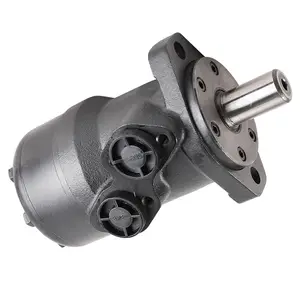




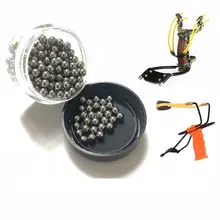











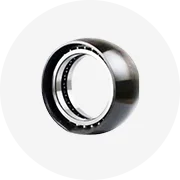

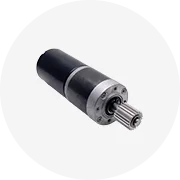


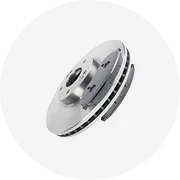










 浙公网安备 33010002000092号
浙公网安备 33010002000092号 浙B2-20120091-4
浙B2-20120091-4